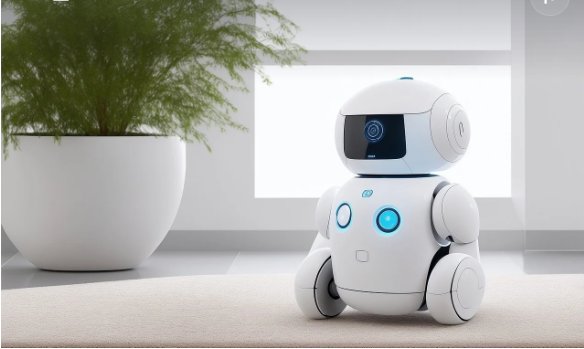Artificial Intelligence in Education. Abuja’s educational landscape is changing quickly as a result of technology improvements.
The application of artificial intelligence (AI) in education is among the most revolutionary innovations of the last several years.
Artificial intelligence is revolutionizing academic performance, student learning, teacher education, and institution resource management.
Artificial Intelligence in Education. This article explores the impact of AI on learning and its transformation in Abuja’s education.
Using AI to Customize Learning Experiences
Artificial Intelligence in Education. One of AI’s most significant advances is the capacity to personalize learning.
A generic teaching style has been used in schools traditionally, which frequently leaves some pupils behind.
Every learner receives a customized learning experience with AI that takes into account their skills and shortcomings.
AI-driven learning systems can assess a student’s comprehension, learning rate, and areas of difficulty.
They then modify the lesson plan and delivery method as necessary.
This customization keeps students interested, particularly in difficult subjects.
Teachers can also use it to monitor students’ development and provide more specialized assistance.
Several schools in Abuja have already started using AI-powered systems to provide individualized instruction.
By preventing them from being slowed down or left behind by the classroom’s speed, this method helps students.
Using AI to Increase Teacher Efficiency
Instructors have a significant impact on how pupils will develop in the future.
But a lot of Abuja teachers are overworked.
Administrative work takes up a lot of time, from planning lessons to grading homework. AI can lessen this load.
AI-powered resources can help teachers with administrative tasks like lesson planning and grading.
For example, AI can score multiple-choice exams fast, sparing professors from hours of labor.
It can also assist in the analysis of student performance data and identify areas in which students require development.
This knowledge allows educators to focus on engaging with children and providing necessary assistance.
AI is enabling Abuja teachers to concentrate on teaching and mentoring students, allowing them to focus on their core tasks.
Curriculum Creation: Staying Ahead of the Curve
The world is changing quickly, and so too do the skills that kids need to succeed.
AI is essential to assisting Abuja’s educational institutions in keeping up with these developments.
AI systems can analyze labor market demands and global trends to suggest improvements to school curricula.
AI can be utilized in education to identify new sectors like data science, digital marketing, and renewable energy.
They can create curricula that get pupils ready for these expanding industries with AI’s assistance.
This guarantees that graduates have marketable skills that are applicable to the workforce.
Some progressive schools in Abuja have already started using AI in their curriculum creation.
This ensures students acquire knowledge and skills for the future workplace, in addition to studying for tests.
Using AI in Inclusive Education
Abuja’s high-quality education system is facing challenges due to socioeconomic status and cognitive issues among students.
AI is enhancing education accessibility and inclusivity by providing AI-powered resources to assist students with disabilities.
Text-to-speech software aids students with visual impairments, while speech-to-text technologies assist students with hearing impairments.
Similar to this, dyslexic kids can benefit from AI-driven learning platforms that let them learn at their own pace.
AI can also close the educational gap that exists in Abuja between urban and rural communities.
Remote learners can receive a top-notch education thanks to AI-powered platforms that use less resources.
Achieving educational equity requires taking this critical step.
AI in Education: Delivering Actionable insights
Instead of assessing a student’s comprehension, traditional tests frequently gauge their memorization skills.
AI has the power to modify that by providing more perceptive evaluations.
AI systems can conduct real-time assessments of students’ comprehension by analyzing their interactions with course materials.
Additionally, these tools can give pupils rapid feedback, which enables them to grow from their errors.
AI-based evaluations, in contrast to traditional ones, are more flexible and ongoing, giving a more full view of a student’s learning progress.
Schools in Abuja have shown more significant gains in student performance when AI is used for student assessments.
Teachers and students can both see areas for growth with the help of real-time data and insights.
Career Advancement and Lifelong Learning
Not only is AI enhancing education for school-age children, but it’s also expanding access to lifelong learning.
AI-powered platforms are being used by professionals in Abuja to acquire new skills and stay up to date in their fields.
AI-driven learning platforms, for instance, provide courses that adjust based on a student’s achievement.
AI-based tools are being utilized by professionals in software development, data analytics, and digital marketing to enhance their skills.
These platforms improve the efficacy of learning by offering real-time feedback and individualized recommendations.
It is essential to be able to learn new things constantly in the fast-paced world of today.
AI is revolutionizing education by providing personalized learning experiences for individuals at all professional stages.
Overcoming Implementation Challenges with AI
Even while artificial intelligence (AI) has a lot to offer Abuja’s educational system, there remain obstacles to its broad use.
The primary challenge in implementing AI systems in schools is the significant infrastructure and technology investment required.
The cost of implementing AI technologies in the classroom may be too much for many public schools to handle.
Having qualified teachers available is another problem.
Teachers must master the use of AI-powered technologies and incorporate them into their lesson plans for AI to be effective.
It is necessary to create teacher training programs that give educators these abilities.
Finally, it can be challenging to deploy AI tools efficiently in some areas of Abuja due to irregular internet availability and electricity.
For AI to be successful in education, these infrastructure problems must be resolved.
Frequently Asked Questions regarding AI in Education
People have brought up a number of significant concerns as AI in education continues to expand.
Here are responses to some of the most frequently asked questions.
In what ways does AI support student participation?
By providing individualized learning opportunities, AI promotes student engagement.
Content is delivered to each learner according to their pace and learning preferences.
Students’ interest and motivation to learn are maintained by this customization.
To keep students interested, AI platforms also incorporate interactive elements like games and quizzes.
What are the primary obstacles to implementing AI in the educational system in Abuja?
Among the main obstacles is the expense.
Many educational institutions are too poor to purchase AI equipment.
In certain places, internet connectivity might also be a problem.
Lastly, for instructors to employ AI in the classroom effectively, they need to be properly trained.
Can teachers be replaced by AI?
AI cannot replace instructors, but it enhances and enhances their teaching capacity.
AI cannot replace the empathy, creativity, and critical thinking that teachers bring to the classroom.
How will AI affect education in Abuja in the future?
AI has a bright future in Abuja’s educational system.
As technology becomes more accessible and affordable, it is likely that more schools will adopt AI technologies.
AI will keep empowering educators, personalizing learning, and expanding educational opportunities for all.
To achieve this vision, schools must overcome their infrastructure and budgetary constraints.
Conclusion: AI’s Revolutionary Potential in Education
Artificial Intelligence in Education. Without a doubt, AI is changing Abuja’s educational system.
AI is enhancing learning results in all areas, from helping teachers manage their workloads to personalizing learning experiences.
Although there are obstacles to its widespread adoption, they are greatly outweighed by the advantages.
Abuja schools that are already utilizing AI technologies are reporting success.
Learning is becoming more inclusive, teachers are more productive, and students are more involved.
AI is anticipated to significantly impact Abuja’s education system, ensuring high-quality instruction for students to prepare them for a rapidly changing world.










